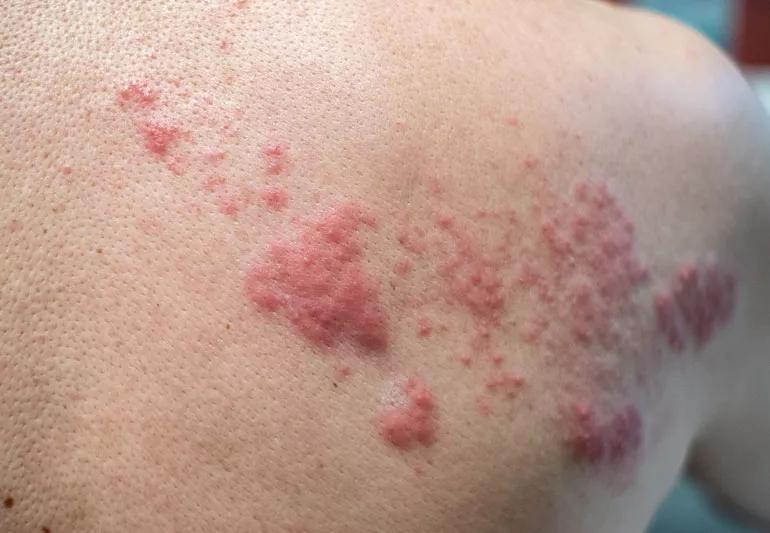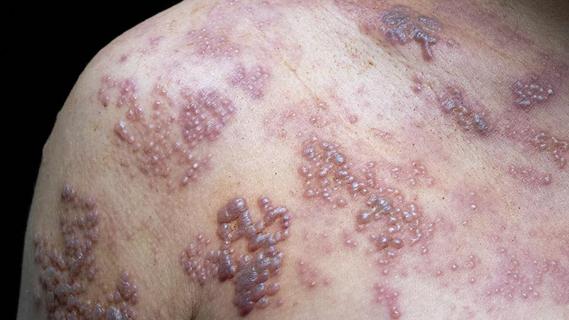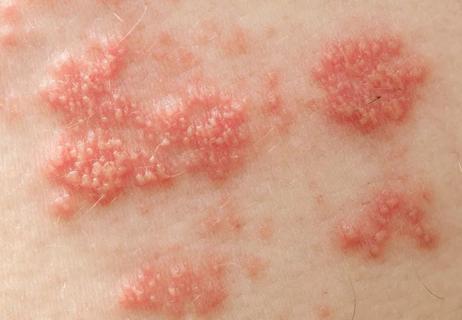But if you haven’t been vaccinated, you could get chickenpox from somebody with shingles

The relationship between chickenpox and shingles is a bit confusing at first. That’s because they’re caused by the same virus: varicella-zoster virus. It’s also because vaccines against both conditions are now available … but are only necessary for certain groups of people.
Advertisement
Cleveland Clinic is a non-profit academic medical center. Advertising on our site helps support our mission. We do not endorse non-Cleveland Clinic products or services. Policy
We asked family medicine physician Jeffrey Brown, DO, to explain the “varicella order of operations.” He shares what you have to do to protect yourself against chickenpox and shingles, depending on your personal medical history.
Up until a couple of decades ago, before there was a vaccine, almost everybody contracted chickenpox at some point during their childhood. It was like a rite of passage — a thing that happened to all kids sooner or later. Some parents actually used to have “pox parties,” where they deliberately exposed their children to somebody with the virus. In the U.S., approximately 99% of people over the age of 40 have had the virus.
“Typically, when you’re a child and you get chickenpox, your body fights off the virus,” Dr. Brown explains, “But it doesn’t get rid of it. The virus, varicella-zoster, goes into hiding somewhere at the base of a nerve in your body for years and years and just stays there quietly. We call that latency.”
Most people who get chickenpox live out the rest of their lives without the virus ever rearing its ugly head again. But for a portion of that population — about 10% — the virus reactivates as shingles.
“I almost think of shingles as being chickenpox: the sequel,” Dr. Brown says. It’s the same virus, but the symptoms are slightly different — and, because it typically strikes people over the age of 50 — it can pack an even heavier punch.
Advertisement
In some cases, shingles causes serious side effects like post-herpetic neuralgia (PHN), inflammation of the brain (encephalitis) and bacterial infections. Those kinds of complications are most likely in people over 70 years of age and people with compromised immune systems.
Unlike chickenpox, which is a “one and done” thing, you actually can have shingles more than once — just like a movie can have multiple sequels.
Chickenpox and shingles used to be facts of life. Nearly everybody got chickenpox. And shingles was a roll of the dice everybody had to take.
Today, both conditions are largely preventable, thanks to the development of vaccines:
The advent of these vaccines means that there are a lot more people out there who have never had chickenpox. And that’s great news! But it can also make it hard to figure out which vaccines you need and which you don’t.
Dr. Brown explains that people who’ve been vaccinated against chickenpox (and never got sick) don’t have to worry about the shingles vaccine, saying, “If you’ve been vaccinated for chickenpox, you’re also protected from shingles as an adult.”
But that doesn’t mean you can throw caution entirely to the wind. You still need to protect yourself against breakthrough infection if somebody around you is sick. It’s not just important for your health: It’s also important for people who are unable to be vaccinated.
More than 90% of people who receive the chickenpox vaccine will avoid the virus. But — while the vaccine is highly effective — it’s not a 100% guarantee against infection.
That means it’s important to take protective measures if somebody close to you is sick with either chickenpox or shingles.
“If someone has chickenpox or shingles and they are at the blister stage where they are contagious, they could transmit the virus to you and you could potentially get chickenpox,” Dr. Brown states.
Specifically, he says that you need to avoid touching the blisters, as that’s the primary way varicella-zoster spreads. The U.S. Centers for Disease Control and Prevention (CDC) also notes that you can breathe in virus particles when a person with chickenpox or shingles scratches their blisters.
Advertisement
If you are unlucky enough to have a breakthrough chickenpox infection, take heart: Vaccinated people who experience breakthrough infections usually have milder symptoms than people who aren’t vaccinated. Just remember that you’ll need to be vaccinated for shingles when you reach age 50 or — if you’re already 50 or older — after your chickenpox infection has subsided.
Regardless of your vaccination status or immunity, you need to always take protective measures if somebody around you is sick with chickenpox or shingles. Doing so doesn’t just protect you: It also prevents the virus from spreading to people who aren’t vaccinated against it.
Advertisement
Learn more about our editorial process.
Advertisement

If you have a weakened immune system, your risk for getting shingles a second or third time increases

It’s 97% effective in preventing shingles in people between the ages of 50 and 69

Postherpetic neuralgia is challenging, but help is available

Chilblain-like skin lesions and rashes are mild (and rare) complications of many viral infections, not just COVID-19

They can feel similar, but the differences matter — especially if you’re at higher risk for complications

Yes, but symptoms can be easy to miss

‘Walking pneumonia’ is milder and doesn’t always require medication — but it’s also highly contagious

They’re viral cousins, but enteroviruses are more likely to cause serious illness

The tropical fruit is a good source of antioxidants and vitamin C

Most people fall asleep within 10 to 20 minutes, but if your experience is different, adjusting your sleep schedule may help

Exploring your hidden side can lead to better understanding of what makes you tick